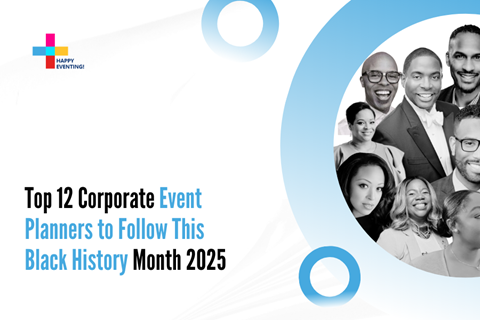

When we say a well-organized and goal-oriented budget can make or break your event, we all know we are not exaggerating.
Kickstarting event–planning with a budget eases decision-making at every step. However, laying that very foundation at the outset can be tricky as there often is a constant dilemma due to different variables like
Such options are just the tip of the iceberg which continues to haunt event planners through multiple event phases. Also, the resurrection of in-person events has been surprisingly quick and so have budget escalations. As the cascading effect of pandemic-induced slowdown and current global inflation trickles down to invisible costs, event professionals are restless and overwhelmed more than ever.
Why Is It Crucial to Create an Event Budget?
Before we start on how to create an effective event budget, let’s focus on the WHYs behind it
1. To determine costs for staffing, accommodation, caterers, entertainment, signages, and every event expense cluster.
2. To mitigate bottlenecks by identifying probable contingencies that may arise in due course and planning reasonable fund allocation.
3. To be able to bargain with vendors well in advance to increase the odds of bagging maximum discounts and strategize long-term commitments with them.
4. To report and convince stakeholders about event budget approvals and prevent last-minute sanction requests.
5. To develop the right marketing plan which becomes easier when the budget figures are available. It allows room for prioritizing marketing collaterals from the very beginning.
6. To attract sponsors who are more likely to trust and agree when the event strategy and takeaways align with their dollar and cents reports.
Moving further, now the spotlight question for event planners is how to create an event budget that is easy to
A Complete Guide to Creating an Event Budget
Glaring Excel sheets, chattering keyboards, and event planners rummaging cluelessly through event data after locking an event with a client is a usual vista.
Honestly, there is no rule book or step-by-step event budgeting guide that can walk you through the process. The concepts of budgeting are pretty much relative to event dimensions that differ for every event organizer. However, understanding the basics of event budgeting can help planners organize profitable and impactful events.
To begin with budgeting, as a first step, you need some well-researched data
Past Event Stats – Analyze which activities missed the budget, which process surprised by being cost-effective, and which activities did not garner attendee attention.
Current Trends – Explore, explore and explore. New venues, hospitality, trending topics, and event technologies.
Contacting Vendors – Even if it is the first time and there are no figures to start with, use industry samples or directly ask vendors to create your base data.
The hardest part of event budgeting is to understand where to start.
Having reasonable baseline numbers is imperative to draw a realistic budget. Say, one chooses to use energy cost estimates from 2020 to create budgets for 2023. While the energy costs have skyrocketed in the interim, won’t it blow up the budget even before it starts?
To create a tractable event budget, it crucial to cover the following primary pointers
1. Event Goals and Strategy – A robust and holistic strategy that encompasses all event goals is the foremost requirement to start on the right track with budgeting. Unless the goal, let’s say brand awareness or generating leads, is not locked even a million-dollar budget cannot help in making the event successful and measuring specific outcomes. Also, defined objectives are pre-requisite for purpose-driven allocation of budgets for different expense categories.
2. Variable Event Costs – Event planners have some obvious arrangements to make, like the spread of food and beverages, hospitality, transportation, and accommodation. Incorporating sustainability elements in all cost-centers, which is also now the foremost focus across the event industry, also helps. Also, there are costs that are not essential to an event but can play a key role in elevating attendee experience. Given their changeable attribute, the chances of curbing expenses in these categories can go higher with negotiations, pre-bookings, and proper research.
3. Contingency Budgets – Prudently, 15-20% of the budget must be set-aside as a cushion for emergencies. There were no contingencies, said no event planner ever. Hidden costs and sudden crisis may come knocking without warning and to make sure the event flow is not affected, keeping a separate vault (fund) is absolutely essential.
4. Marketing and PR – Event promotion and PR costs depend on the type of event - whether it is a large event or an internal meet. What is the attendee demographic? Will it require more paid ads? Such questions must be addressed before allocating the marketing budget. Also, if the ticket size is big, event promotion budget will need more fuel to convince people to register and attend the event.
5. Event Technology – Penetrating deep into all event aspects, event technology is now available for almost all processes, be it attendee matchmaking, accessing digital marketplaces, live streaming, or budget management. Allocating event budget towards latest event technologies is crucial for an event’s success as they can seamlessly
In a nutshell, planners need to invest in event technologies that reduce efforts and bring ease of operations.
6. Mandatory Costs
Whether the event is in-person, virtual, hybrid, or in the Metaverse, there are certain costs that are fixed and the trick lies in the negotiating skills of event organizers. Some of such areas include:
a. Speakers and hosts
b. Music and entertainment
c. Agency or event planner fees
Event industry professionals are battling everyday with rising costs of events. Achieving target ROI is harder than ever and sharpening planning and negotiation skills are crucial. With the changing trajectory of the industry, integrating event processes with these event budgeting tips can form a checklist or a foundation for elaborate budgeting for professionals who are new as well as experienced in event budgeting.
If you’re planning in-person events, find out how to wow your stakeholders - https://bit.ly/3Y1Mkqu

Networking is one of the most valuable ways to discover boundless opportunities and for 77.7% of business professionals , in-person conferences open a greater scope to make rewarding connections.

When planning a healthcare fair, the goal goes beyond booking a venue and sending out invites. You’re creating an event that brings together healthcare professionals, researchers, and exhibitors, all seeking value and...

Diversity and inclusion are at the heart of the events industry, where planners are focused on creating experiences that bring together people from all walks of life.